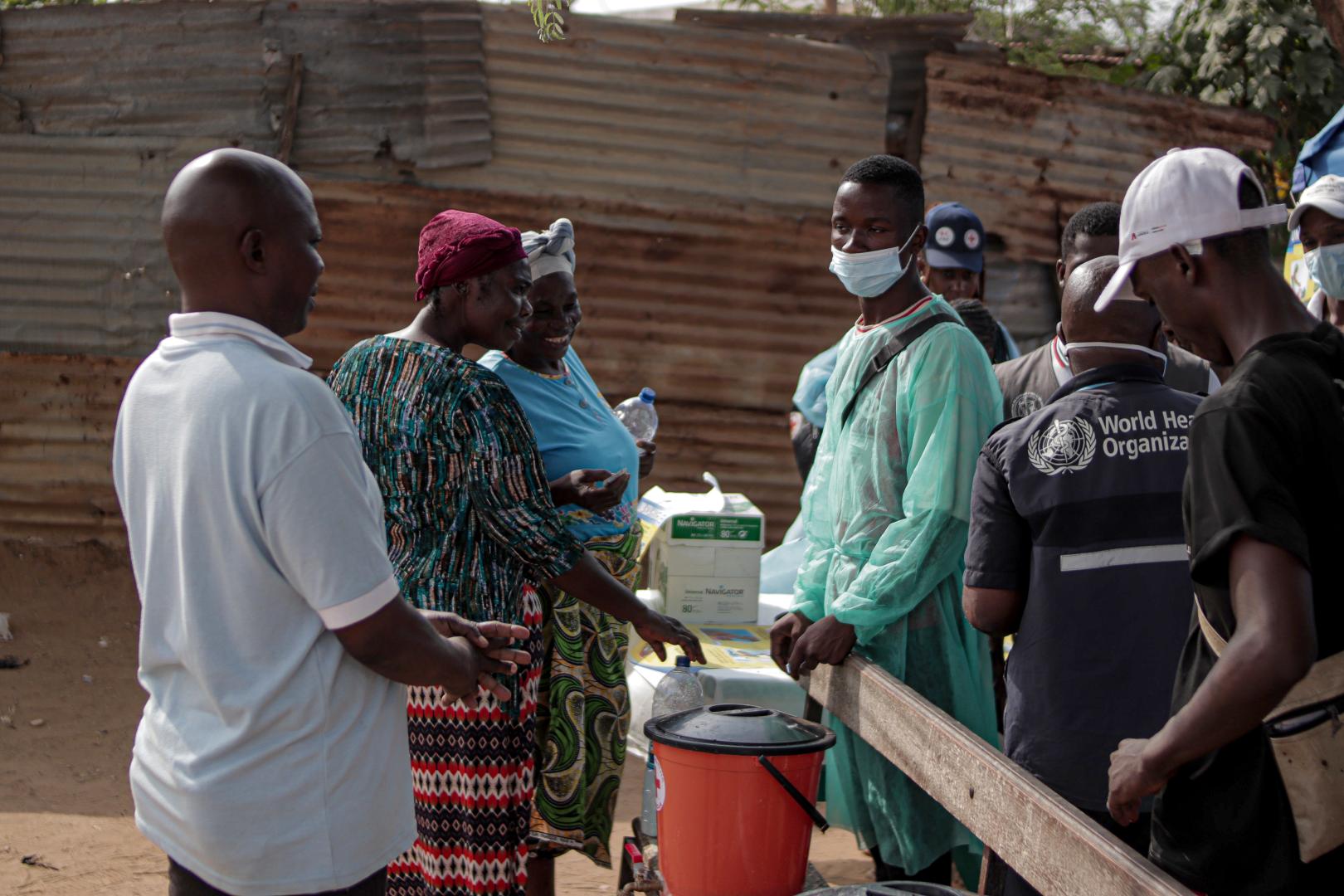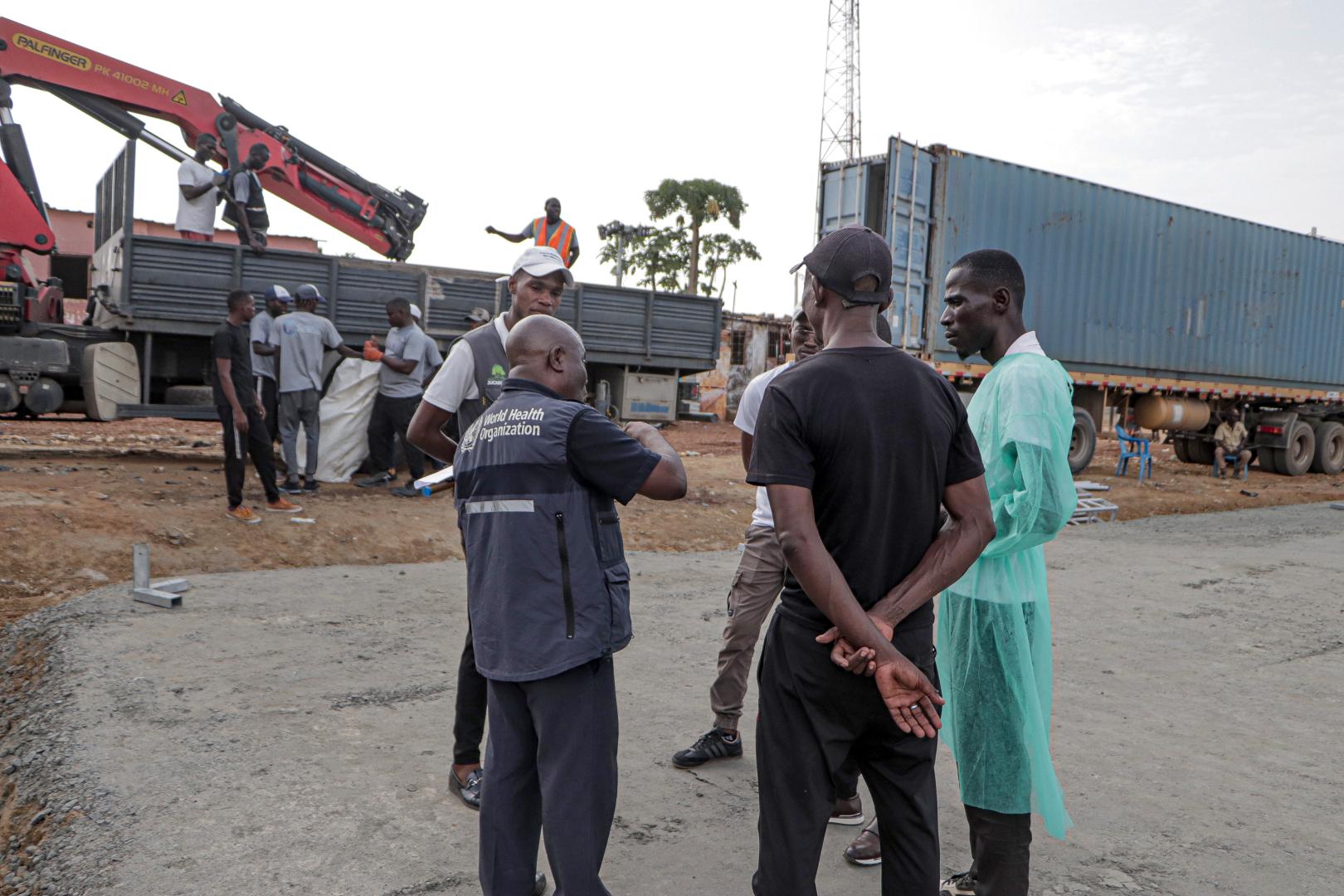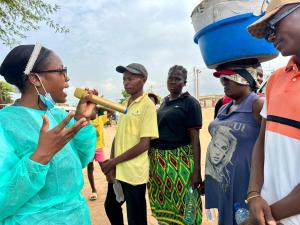Cholera Outbreak in Angola: Strengthening Response Capacity and Promoting Community Resilience
In Paraíso neighborhood, located in Cacuaco, Luanda, the epicentre of a cholera outbreak that has already affected three provinces in Angola, with 383 cases recorded and 22 lives lost, fear hangs over the community. Amid the uncertainty, Maria da Conceição is a voice of hope. Living in the neighbourhood for more than 20 years, Maria is more than just a resident - for the past six years, she has been working as a Community and Health Development Agent (ADECO), and in this challenging period, her mission has become more important than ever. ‘‘When I heard about the first cases of cholera here in the neighborhood, I realized I had to act. My community needed me,’’ says Maria as she walks along the unpaved roads, bringing information and support to families.

Since the outbreak was identified in early January 2025, the Ministry of Health, with the support of the World Health Organization (WHO), has stepped up efforts to contain the spread of the disease. Measures include disinfecting contaminated areas, identifying and tracing contacts, strengthening diagnostic capacities at the National Laboratory, carrying out preparedness assessments in provinces and districts, developing a cholera communication strategy with community engagement, as well as in-depth epidemiological and laboratory investigations to confirm suspected cases. In addition, activists and mobilizers in the field have been deployed for a house-to-house information campaign and distribution of Information, Education and Communication (IEC) material and calcium hypochlorite stock solution (bleach), enabling families to disinfect drinking water, latrines, and toilets at home themselves. Maria is one of the heroines on the front line ensuring the success of these actions. Maria emphasizes that the fight against cholera must be a joint effort by the whole community: ‘If we take care of the water we drink and keep our homes clean, we can save lives,’ she explains, while handing out leaflets and bottles of calcium hypochlorite solution, teaching families how to disinfect their water.
.jpg)
According to Maria, being an ADECO goes beyond a traditional responsibility. It's also a personal achievement. She grew up in Bairro Paraíso and knows all the neighbors in her block. ‘’When I see a child drinking water that I know is treated, I feel like I'm making a difference. This gives me strength to carry on,’’ she says, overwhelmed.
The response to the outbreak has been extensive. The Ministry of Health is preparing a 100-bed Cholera Treatment Centre in Bairro Paraíso, so that no one must travel long distances to receive treatment. Drinking water tanks are also being installed, ensuring safer access to this essential resource.

The World Health Organization (WHO) has played an essential role in supporting the fight against the cholera outbreak in Angola, providing technical and operational support in various areas. From leadership and coordination, facilitating the drafting of a National Cholera Response Plan and deploying teams to the affected provinces, to logistical support, with the management of inventories and the reinforcement of 17 rapid response teams. At community level, the WHO has supported the creation of a communication strategy on cholera, promoting education and awareness among affected populations. Furthermore, efforts have been made to obtain 950,000 cholera vaccines, a fundamental measure to contain the spread of the disease. Other priority areas have been strengthening laboratory capacity by sending specialists to the National Laboratory, and supporting epidemiological surveillance by updating situation reports and readiness assessments in the various provinces. To engage the community, the WHO and the Ministry of Health have been counting on the support of ADECOS, scout groups, churches and associations to jointly protect communities and save lives.
Angola has faced cholera before and has overcome difficult times. Between 1995 and 2000, the country remained free of outbreaks, but in 2011 it was hit by a major outbreak, which caused 2284 cases and 181 deaths. More recently, between 2016 and 2017, the outbreak affected the provinces of Cabinda, Luanda and Zaire, resulting in 252 cases and 11 deaths. Each battle has been a lesson, strengthening the response capacity and resilience of communities.
‘‘I believe we're going to make it. We've been through a lot and, together, we're going to win this one,’’ says Maria with her voice filled with confidence. She inspires not only the professionals who work alongside her, but the entire community, who see in her determination a reason to believe that Angola can overcome cholera and protect health for all.



